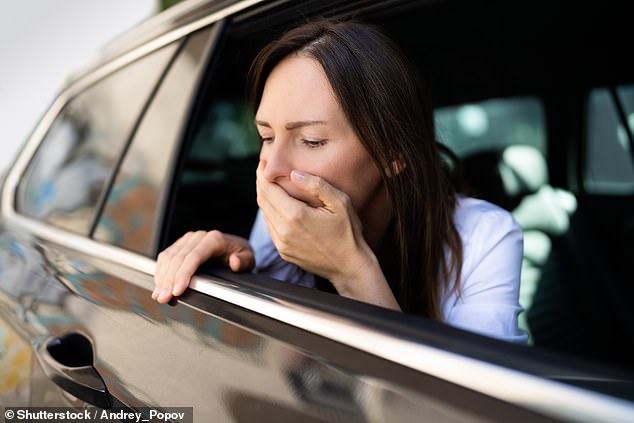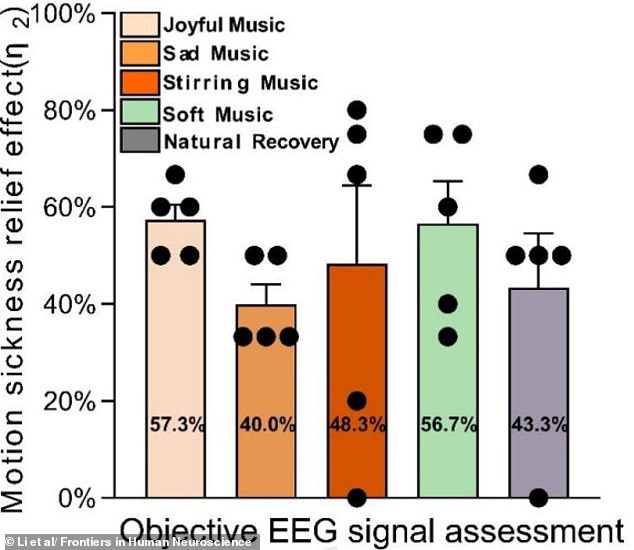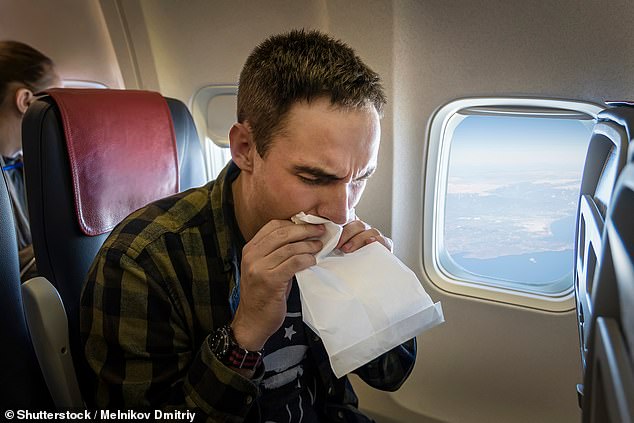For those who get carsick, there’s nothing worse.
The combined feeling of nausea, cold sweats, dizziness and a headache means you’re desperate to reach your destination as soon as possible.
While some advice might be to ‘look at the horizon’ or breathe into a brown paper bag, it’s hard to know what will work or what’s an old wives’ tale.
Now, a study into the issue has revealed a surprisingly simple solution that can slash symptoms in half.
And it’s all to do with what type of music you’ve got playing.
‘Motion sickness significantly impairs the travel experience for many individuals, and existing pharmacological interventions often carry side–effects such as drowsiness,’ Dr Qizong Yue, from Southwest University in China, said.
‘Music represents a non–invasive, low–cost and personalised intervention strategy.’
But should you put on Pharrell’s ‘Happy’, Adele’s ‘Someone Like You’ or Whitney Houston’s ‘I Will Always Love You’?

The combined feeling of nausea, cold sweats, dizziness and a headache can make travel sickness one of the most uncomfortable experiences (stock image)

Joyful music was found to be the most effective at alleviating symptoms, followed closely by soft music
Using a specially calibrated driving simulator, the team induced car sickness in 30 participants and then played different types of music while they tried to recover.
Joyful music alleviated carsickness the most, reducing it by 57.3 per cent, they found.
This was closely followed by soft music, that alleviated symptoms by 56.7 per cent.
Passionate music reduced motion sickness by 48.3 per cent, while playing sad music turned out to be slightly less effective than doing nothing.
While the control group – who listened to no music during their recovery period – reported a 43.3 per cent reduction in symptoms, those who listened to sad music said their feelings of nausea and dizziness were lowered by only 40 per cent.
‘Based on our conclusions, individuals experiencing motion sickness symptoms during travel can listen to cheerful or gentle music to achieve relief,’ Dr Yue said.
It’s possible that soft music relaxes people, relieving tension which exacerbates carsickness, while joyful music might distract people by activating brain reward systems, they said.
Sad music could have the opposite effect, by amplifying negative emotions and increasing overall discomfort.

The findings could also be beneficial for other forms of travel sickness, such as when at sea or flying (stock image)
The researchers said the findings, published in the journal Frontiers in Human Neuroscience, are likely applicable to sickness experienced during air or sea travel.
As part of their study they also asked individuals to wear electroencephalogram (EEG) caps to try and identify quantifiable signals of carsickness in the brain’s activity.
Overall, they discovered changes in the brain’s occipital lobe when participants reported carsickness.
While further research is needed, they said this finding could be developed into a method of tracking motion sickness quantitively and in real time.
In the UK, as many as one in five adults suffers from car sickness, according to the RAC.
Sitting in the back seat appears to be the worst for triggering symptoms, while the top reason people give for feeling sick is reading in the car followed by using a tablet or phone.
Nearly four in 10 blame winding country roads while a third say it’s a lack of fresh air that causes them to feel nauseous.












